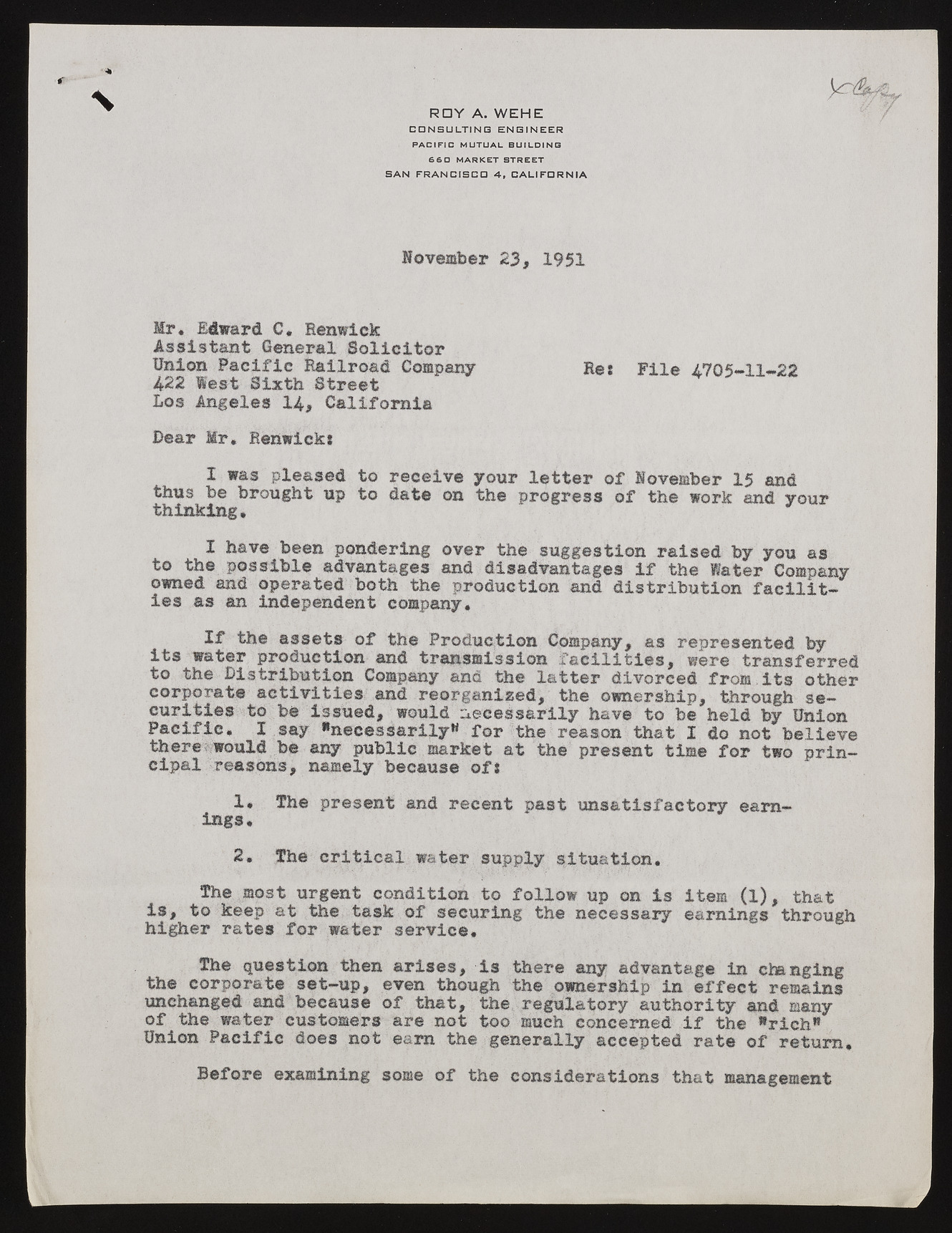Copyright & Fair-use Agreement
UNLV Special Collections provides copies of materials to facilitate private study, scholarship, or research. Material not in the public domain may be used according to fair use of copyrighted materials as defined by copyright law. Please cite us.
Please note that UNLV may not own the copyright to these materials and cannot provide permission to publish or distribute materials when UNLV is not the copyright holder. The user is solely responsible for determining the copyright status of materials and obtaining permission to use material from the copyright holder and for determining whether any permissions relating to any other rights are necessary for the intended use, and for obtaining all required permissions beyond that allowed by fair use.
Read more about our reproduction and use policy.
I agree.Information
Digital ID
Permalink
Details
More Info
Rights
Digital Provenance
Publisher
Transcription
r \ R O Y A. W E H E C O N S U L T I N G E N G I N E E R P A C I F I C M U T U A L B U I L D I N G 6 6 C M A R K E T S T R E E T S A N F R A N C I S C O 4 , C A L I F O R N I A November 23, 1951 Mr. Edward C. Renwick Assistant General Solicitor Union Pacific Railroad Company Res File 4.705-11-22 422 lest Sixth Street Los Angeles 14, California Dear Mr* Renwick* I was pleased to receive your letter of November 15 and thus be brought up to date on the progress of the work and your thinking. I have been pondering over the suggestion raised by you as to the possible advantages and disadvantages if the later Company owned and operated both the production and distribution facilities as an independent company. If the assets of the Production Company, as represented by its water production and transmission facilities, were transferred to the Distribution Company and the latter divorced from.its other corporate activities and reorganized, the ownership, through securities to be issued, would necessarily have to be held by Union Pacific. I say "necessarily* for the reason that I do not believe there; would be any public market at the present time for two principal reasons, namely because of* 1* fhe present and recent past unsatisfactory earnings, 2. fhe critical water supply situation, fhe most urgent condition to follow up on is item (1), that is, to keep at the task of securing the necessary earnings through higher rates for water service. fhe question then arises, is there any advantage in changing the corporate set-up, even though the ownership in effect remains unchanged and because of that, the regulatory authority and many of the water customers are not too much concerned if the "rich* Union Pacific does not earn the generally accepted rate of return, Before examining some of the considerations that management

